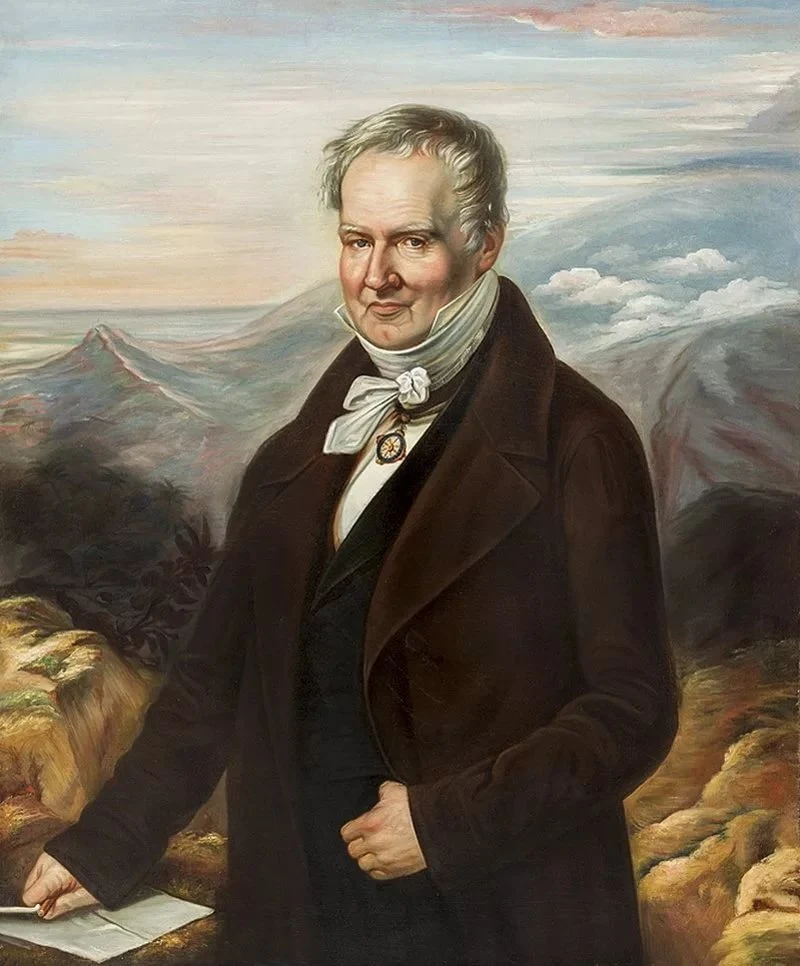
Wilhelm von Humboldt is the source of the ambiguity (1767-1835). Humboldt was the first European to combine a strong philosophical background with knowledge of non-Indo-European languages. He was also the first to underline the enormity of the cultural differences exhibited in their languages. The central thesis of Humboldt's linguistic philosophy is that one people's worldview (Weltanschauung) differs to an unprecedented degree from that of another, and that this is owing to enormous differences in the "inside structure" (innere Sprachform) of their respective languages.
"Die innere Sprachform", he explains as follows:
Denn die Sprache stellt niemals die Gegenstande, sondern immer die durch den Geist in der Spracherzeugung selbst statig von ihnen gebil deten Begriffe dar; und von dieser Bildung, insofern sie als ganz inner lich gleichsam dem Articulationssinne vorausgehend angesehen werden
muss, ist hier die Rede.
As a result, language's "internal structure" is similar to the semantic labeling of reality (Gegenstiinde), but it is also the structuring of the world imposed by semantic units (Begriffe). Perhaps our current challenges in evaluating the theory would not have arisen if Humboldt had confined himself to presenting only this milder "Weltanschauung hypothesis" with data from the various languages he knew. But he went on to say that man does not see, comprehend, or think until he employs language:
Der Mensch lebt mit den GegensUinden hauptsachlich, ja . . . sogar ausschliesslich so, wie die Sprache sie ihm zufiihrt.
Furthermore, according to Humboldt, language and mind are one and the same:
Die intellectuelle Tatigkeit, durchaus geistig, durchaus innerlich, und gewissermassen spurlos voriibergehend, wird durch den Laut in der Rede ausserlich und wahrnehmbar fur die Sinne. Sie und die Sprache sind daher Bins und unzertrennlich von einander.
Language is thinking for Humboldt, and thought is language. He repeatedly distinguishes the two:
Das Sprechen [ist] eine nothwendige Bedingung des Denkens des Bin zelnen in abgeschlossener Einsamkeit.
Therefore, Humboldt's claim, that language entirely influences thinking, is an extreme one. If, as Humboldt claims, language and thinking are one, then thought is impossible without language. Was Humboldt willing to embrace this inescapable conclusion? No, there can be no thought without language, would he have said? If one accepts that thinking and language are one and the same, one must likewise accept that there was no thought before language. So, according to Humboldt, how did language emerge?

Would he have disputed that someone, a human or a group of humans, needed to be able to think in order to establish the first language? Yes, Humboldt disputed that man developed language collectively.
He believed that language appeared out of nowhere one day.
He claimed that language was "eine unwiIlkiirliche Emmanation des Geistes, nicht ein Werk der Nationen, sondem eine ihnen durch ihr inneres Geschick zugefallene Gabe".
The Hypothesis From Humboldt to Today
On the other hand, has pushed him to tone down his earlier claims about the power of language over mind. He appears to be aware of the inconsistencies in his system of ideas on occasion, but his attempts to overcome them simply serve to confuse the matter by implying that the paradox was not actually a contradiction.
For example, he writes of a comparable inconsistency in his tenets, Es ist kein leeres Wortspiel, wenn man die Sprache als in Selbsttatigkeit nur -aus sich entspringend und gottlich frei, die Sprachen aber als gebunden und von den Nationen, welchen sie angehoren, abhangig
darsteIlt.
The preceding implies that the reader should accept both claims as true at the same time. Internal inconsistencies may have appeared "simple" paradox to Humboldt's readers in the nineteenth century. In the nineteenth century, Steinthal, for example, pointed out these same contradictions in Humboldt's position, but he refers to it as "Humboldts Dualismus," noting that, while Humboldt asserts the identity of Geist and Sprache, he (Humboldt) continues to regard them as harmoniously cooperating separate forces. It's hard to say whether Humboldt thought of Geist as language more often than he thought of the two as independent entities.
Result
In any event, he did not explain in his works how his assertions about language's influence over cognition could be reconciled with his theories about language's genesis. It is now obvious that Humboldt's Weltanschauung concept embodies linguistic relativity at its most severe. Because of his association of language and mind, Humboldt claimed that "man lives in the world around him largely, if not completely, as language reveals it to him," a far-fetched claim.